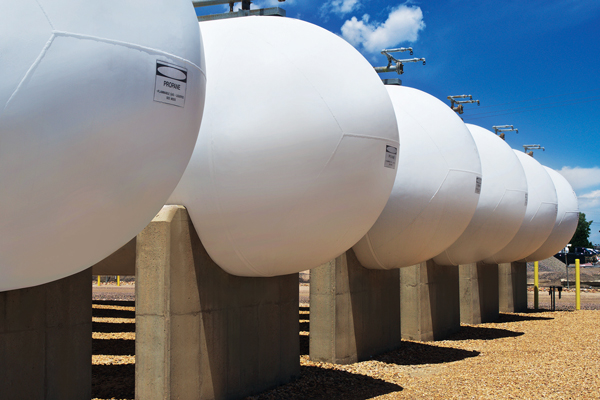Efficient Inventory Management Strategies for Propane Suppliers

Ensuring a smooth flow of supply while meeting customer demands is essential for business success. Effective inventory management plays a pivotal role in achieving this balance. Let’s examine some simple yet professional strategies for propane suppliers to optimize their inventory management processes and maintain a steady supply to meet customer needs.
Forecasting Demand
One of the key aspects of efficient inventory management is accurately forecasting demand. Propane suppliers can utilize historical data, market trends, and seasonality factors to predict future demand. By analyzing past consumption patterns and customer behavior, suppliers can better anticipate fluctuations in demand and adjust their inventory levels accordingly.
Safety Stock Management
Maintaining a safety stock is essential to ensure continuity of supply, especially during unforeseen spikes in demand or disruptions in the supply chain. Propane suppliers should calculate their safety stock based on factors such as lead times, demand variability, and service level agreements. By keeping a buffer stock on hand, suppliers can mitigate the risk of stockouts and better respond to unexpected changes in demand.
Inventory Optimization Techniques
Implementing inventory optimization techniques can help propane suppliers strike the right balance between carrying costs and stock availability. Techniques such as economic order quantity (EOQ) analysis, just-in-time (JIT) inventory, and ABC analysis can aid in identifying optimal reorder points, minimizing excess inventory, and maximizing inventory turnover. By optimizing inventory levels, suppliers can reduce storage costs and improve cash flow while ensuring sufficient stock to meet customer orders.
Utilizing Technology Solutions
Advancements in technology have revolutionized inventory management for propane suppliers. Utilizing inventory management software or propane-specific ERP (Enterprise Resource Planning) systems can streamline processes, automate inventory tracking, and provide real-time visibility into stock levels. These tools enable suppliers to efficiently manage inventory across multiple locations, track propane assets, and generate insightful reports for informed decision-making.
Continuous Improvement and Monitoring
Continuous improvement is essential for refining inventory management processes over time. Propane suppliers should regularly review their inventory management practices, analyze performance metrics, and identify areas for optimization. By monitoring key performance indicators (KPIs) such as inventory turnover ratio, stockout rate, and fill rate, suppliers can pinpoint inefficiencies and implement corrective measures to enhance overall inventory management effectiveness.
Efficient inventory management is fundamental to the success of propane suppliers, ensuring timely supply to meet customer demands while minimizing costs and optimizing resources. Propane suppliers can enhance their inventory management practices and drive operational efficiency in their businesses by employing these proactive strategies.
















